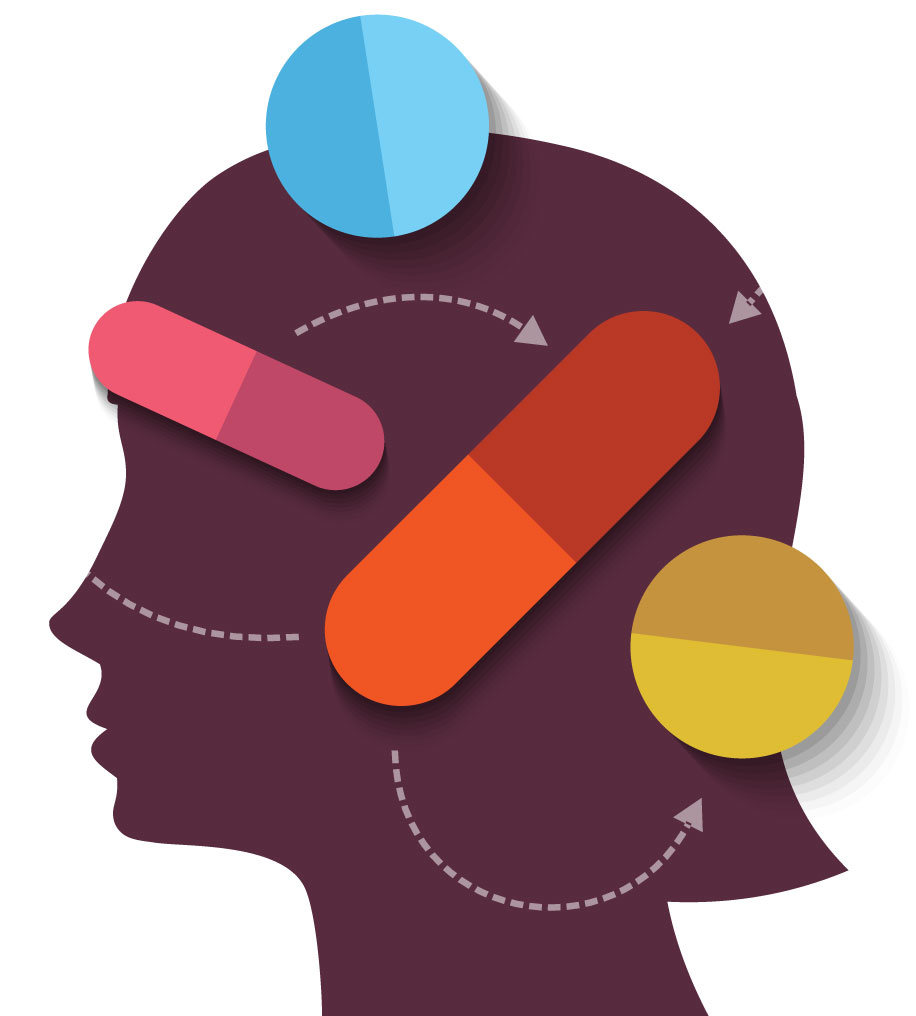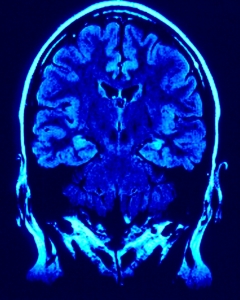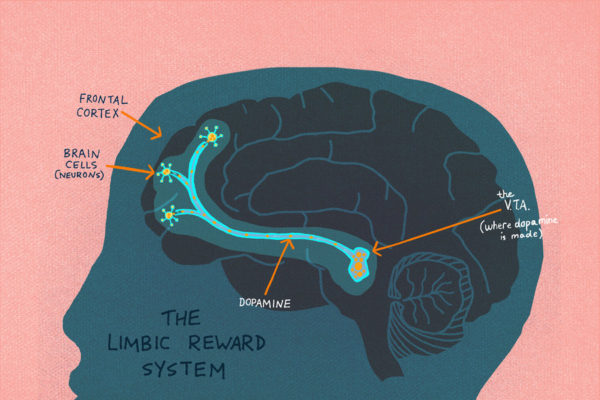Frequent use of opioids causes long-lasting changes to the structure and biochemistry of the brain. Many of these changes are the reason why opioids are so addictive.
In particular, opioids target what is called the “reward pathway.” Our brains are hardwired to reward activities that are beneficial, such as drinking water or eating, with feelings of pleasure. The brain remembers that these activities bring pleasure and thus encourages us to do them again.
Opioids distort this process. By washing the brain in chemicals that overstimulate the reward pathway, opioids ‘trick’ the brain into thinking the drugs are as
beneficial as water and food. The reward response is so powerful that people repeat even life-threatening behaviors to get their fix.
 Opioids also lower brain activity in regions that deal with higher level reasoning, including morality, social norms and abstract thought. This makes it even harder for the addict to notice their self-destructive behavior.
Opioids also lower brain activity in regions that deal with higher level reasoning, including morality, social norms and abstract thought. This makes it even harder for the addict to notice their self-destructive behavior.
Eventually, the brain starts to notice that its reward pathways have become excessively active and tries to tone them down by reducing its number of opioid receptors. This leads to greater tolerance, impelling the addict to take larger doses. After much abuse, the sense of pleasure can disappear altogether and addicts take opioids merely to feel normal. Moreover, cravings can persist for years after someone gets sober.
Do you or someone you know have an opioid problem? You may qualify for the Segal Institute’s clinical research study on opioid dependence and withdrawal.
Source: PsychCentral PhotoCred: NPR & Harvard
[gravityform id=”3″ title=”true” description=”true”]


